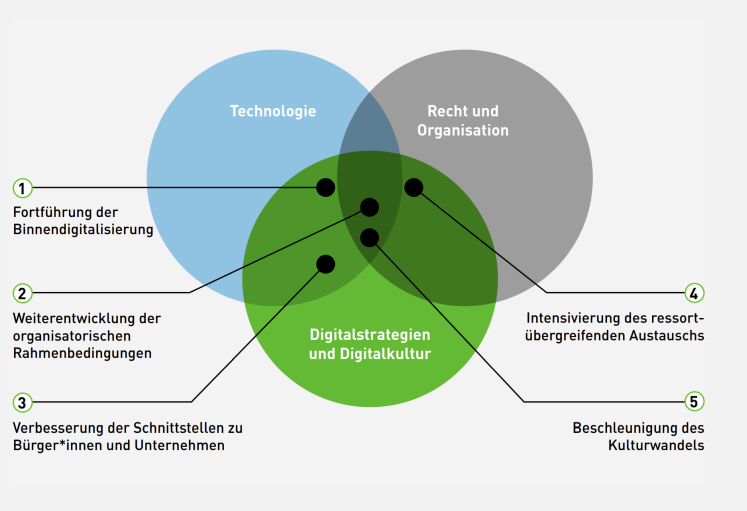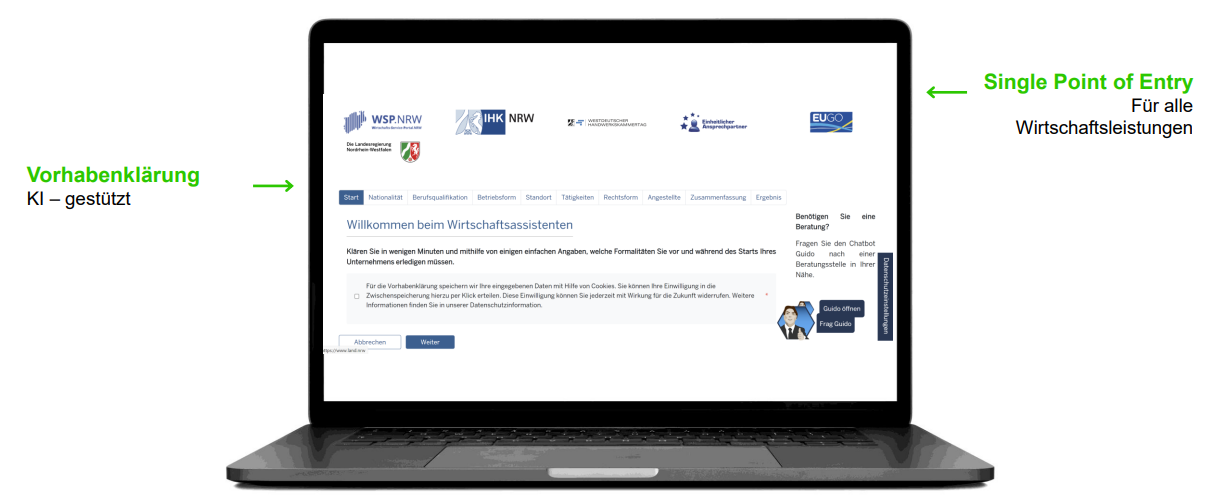The crises of recent years demonstrate the need for digital resilience in government. On the way to a digital city hall.
A guest post by Laurence Greeb and Jessica Przybylski of Cassini Consulting.
City hall is no longer a building; at least not exclusively. Instead, we should conceive of city hall as an administrative platform that encompasses both the physical city hall and the digital space. We need to completely rethink administration, focusing on the needs of the citizen.
Resilience and efficiency
The Corona pandemic has shown how necessary digital services are, even in administration. It's all about digital resilience: The state must ensure the administration's ability to act in crisis situations. Not only a pandemic, but also other situations such as the flood disaster in the Ahr valley revealed the digital failures in the German administration.
Digital resilience touches on legal and cultural aspects as well as technical ones. Take the example of Formal Online Meetings (FOMs): During the pandemic, both the tools and the legal basis for FOMs that comply with the statutes had to be created. In addition, a new meeting and dispute culture had to be established. Today, we are already a big step further in this regard.

But it's also about efficiency: The digital city hall gives the administration the opportunity to take better care of the people who need help. At the same time, it gives citizens the freedom to deal with their concerns at any time and from anywhere. By relieving them of bureaucracy and manual processes, the focus of citizens, businesses and administration is directed to what is really important: their day-to-day business.
Digital management
With the implementation of the EU's Single Digital Gateway Regulation (SDG) and the Online Access Act, around 500 administrative services are to be available to citizens and companies as online services by the end of 2022. The political will to digitize the administration has thus been manifested in law.
Of these 500 administrative services, around 300 take place at the state level. An impressive practical example of the digitization and consolidation of such services is the business service portal of the state of North Rhine-Westphalia.

The view of the city hall
This digitization effort is important and right, but does it affect ordinary citizens at all?
The citizen's most frequent points of contact with the administration are services such as applying for a passport, filing election documents, getting married and, last but not least, filing an income tax return. So, on average, the citizen has very little to do with the administration in a year, and usually with the local city hall.
The primary goal must therefore be to digitize the services that are regularly used first. City hall does not have to become the Amazon of administration. It doesn't have to sell anything, but it must offer easy access to the services that citizens inevitably need to use. This is where automation can add real value.
The city hall of the future
The following principle must apply to the digitization of administration: Everything MUST be digitized. And if not, this must be justified. One example is the prostitution industry: In this industry, employees should personally present themselves to the administration so that the state can fulfill its duty of care and combat forced prostitution.
Most procedural processes, such as business registrations or child benefit applications, can be digitized. The focus here is on both the registers and the processes themselves. So it's not just about digitizing a filing cabinet, but in particular about automating the process flows.
This has far-reaching consequences not only for citizens, but also for the institution of city hall itself. Job descriptions must be adapted to new requirement profiles. "New work" must also take place in city hall. Regulations for cybersecurity - for example, bring-your-own-device policies - and flexible working hours and practices that accommodate digital working are needed.
The Smart City
In the long term, this digital vision goes far beyond city hall. All digitization trends in municipal administration, infrastructure, mobility, security and the private sector culminate in the smart city.
This is also where FOMs come back into view: They are one of many milestones on the road to digital government. They create digital resilience, efficiency gains, and added value for all stakeholders. During the corona pandemic, a lot of progress has already been made in terms of FOMs. Now it is important not to fall back into the old rut and return to face-to-face events out of habit.
What's the point? We have the tools - and since the pandemic, we also have the legal basis - now we need digital administrative processes and a cultural change. But it's also clear that you don't build a smart city with a 10-year plan, but step by step through an agile approach and learning by doing.








